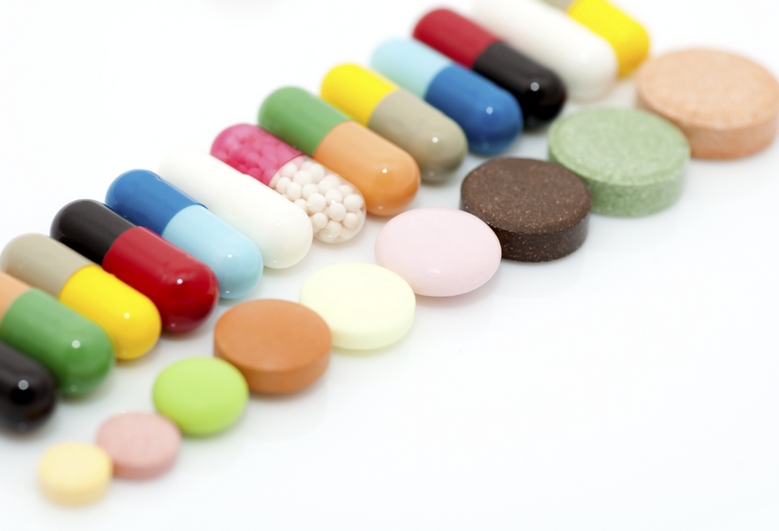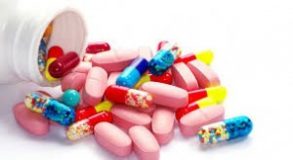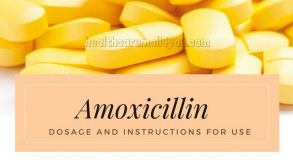“Antibiotic” from Greek literally means “against life”. In reality, no other thing is so useful for our health as they are. Since English microbiologist Fleming first discovered penicillin in 1928 and thereby started the revolution in the field of antimicrobial agents, these drugs have saved millions of lives and treated previously incurable disease. But even modern most effective antibiotics are not a panacea.
5 Most Popular Myths and Facts about Antibiotics
 1. Antibiotics Can be Prescribed Only by a Doctor (True)
1. Antibiotics Can be Prescribed Only by a Doctor (True)
“Why do I need to consult a doctor? I can identify the disease and prescribe treatment by myself.” Some twenty years ago, doctors did not know that the Internet could become their «competitor”, moreover not the most successful and competent competitor. Nowadays there are many cases when doctors are forced to “re-treat” patients who prescribed themselves antibiotics, considering that collective mind of the Internet is more competent than ordinary therapist. That is a huge misbelieve. Only a specialist can determine what you need to be treated with, and, most importantly, how. Trust your doctor, not an anonymous advisers on the forums. Answers many all questions knows your local therapist, to which patients, thanks to the all-knowing Internet, have less and less trust.
2. The Prices for Antibiotics are Proportional to its Effectiveness (Myth)
Marketing specialists have long ago noticed – the cheaper the product is, the less trust to it people have. This misconception often operates against us while choosing antibiotics. We begin to argue with the doctor. Keep in mind, at some diseases simple penicillin will act faster and «milder» than modern synthetic drug.
And again, here everything depends on your doctor and tests for sensitivity. If the doctor prescribes you a drug that costs severely expensive, be sure to ask if there are any «generic» for this medication, i. e. medicament of exactly the same composition, but much cheaper and with a different name.
3. Antibiotics Don’t Help in a Common Colds (True)
The word «cold» is considered to include a wide range of diseases – from herpes to the flu and quinsy. Again, you need to return to the first point and not try to self-medicate.
Remember the main thing – antibiotics are powerless in the treatment of viruses that cause the so-called “cold”: for already weakened body it will even harder to function when you start to take antibiotics.
4. Antibiotics and Alcohol are Incompatible (True)
That’s what you have heard hundreds of times. At any party there is a person with sad face, to the question “Why don’t you drink today?”, he quietly answers: “I’m taking antibiotics.” It seems, there is nothing to be sad about. You are doing a useful thing for your body – take necessary medications.
Well, it’s OK, if simultaneous intake of alcohol and antibiotics will cause “only” a serious load on your liver. The most unpleasant thing is severe side effects, which are caused by alcohol in combination with certain widely spread antibiotics:
- vomiting;
- alteration of consciousness;
- abnormal state of cardiovascular system.
Moreover, alcohol decreases or increases drug effects, which may violate treatment regimen.
But there is no need to be so categorical. One glass of wine during the antibiotic therapy is appropriate. But note – it is during the course, not taking drug with alcohol. It is one thing – a drug in the blood, and quite another – a drug mixed with alcohol in the stomach.
5. If You Feel Better, You Can Stop Taking Medications (Myth)
More than a century ago, the new scientists’ invention was treated with caution. First antibiotics had a lot of side effects, were toxic and the whole therapy experience was gained by trial-and-error method. That is where our fears of antibiotics came from — from our parents, and their — from their parents. Be sure, modern drugs are much safer than its prototypes.
Therefore, the treatment course must be followed carefully. Moreover, the frequency must also be considered, i. e. three times a day – means intake with approximately equal intervals to maintain drug concentration in blood.
Even if after three-four days of taking these drugs you feel better, by no means, do not stop taking drugs. The course must be completed, otherwise you risk to get acquainted with the term “antibiotic resistance”, or resistance to this type of drug, and, as a result – a new course of another medication, a new body burden. Again, back to the first point: if doctor prescribed that many milligrams to take at once – take that much, no more, no less.
And never give up. Even the most serious bacterial diseases in the 21st century can be cured. It is important to follow your doctor’s recommendations and take antibiotics according to a prescription.



